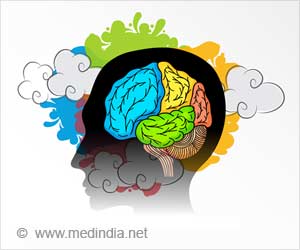
‘Attention deficit hyperactivity disorder (ADHD) can be diagnosed easily using a computerized test of attention and activity (QbTest). QbTest report was faster in providing diagnostic decisions no overall loss of diagnostic accuracy.’
Tweet it Now
In the randomized, parallel, single-blind controlled trial in mental health and community pediatric clinics in England (the AQUA study), 267 participants aged 6-17 years-old and their clinician were randomized to either receive the QbTest report or not as part of their standard diagnostic assessment for ADHD. 132 out of the 267 participants and their clinicians received the QbTest report.Clinicians with access to the QbTest report were more likely to reach a diagnostic decision about ADHD. At six months, 76% of those with a QbTest report had received a diagnostic decision, compared with 50% without. The QbTest reduced appointment length by 15%, increased clinicians' confidence in their diagnostic decisions, and doubled the likelihood of excluding ADHD. There was no difference in diagnostic accuracy.
The prevalence of attention deficit hyperactivity disorder (ADHD) diagnoses in children, and young people have increased, but diagnostic practice among clinicians remains variable, with significant diagnostic delays and reliance on subjective assessments.
The AQUA study, published in the Journal of Child Psychology and Psychiatry, was funded by the NIHR Collaboration for Leadership in Applied Health Research and Care East Midlands and supported by NIHR Mental Health MedTech Co-operative.
"The assessment of ADHD remains largely subjective and children and young people in the UK, compared to other European countries, experience some of the longest delays for a diagnostic decision and initiation of appropriate treatment," said lead author Professor Chris Hollis, of the University of Nottingham, in the UK.
Advertisement
"Interestingly, clinicians with a QbTest report were more likely than those without a QbTest report on a young person to exclude a diagnosis of ADHD. The results suggest that QbTest is ready for implementation within the ADHD assessment pathway in the UK, and other countries with similarly long delays to diagnosis, where it is likely to lead to earlier diagnostic decisions and significant healthcare system efficiencies."
Advertisement














